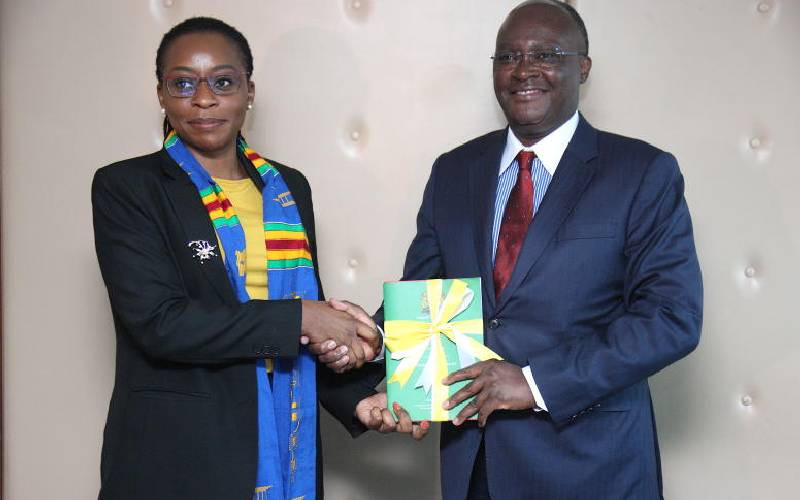×
The Standard e-Paper
Smart Minds Choose Us

Kenya Roads Board (KRB) has tapped the former Kenya Association of Manufacturers (KAM) Chief Executive Phyllis Wakiaga to chair its board for the next three years.
Ms Wakiaga (pictured, left) takes over from Isuzu Motors East Africa Chief Executive Ms Rita Kavashe at the helm of the roads agency.